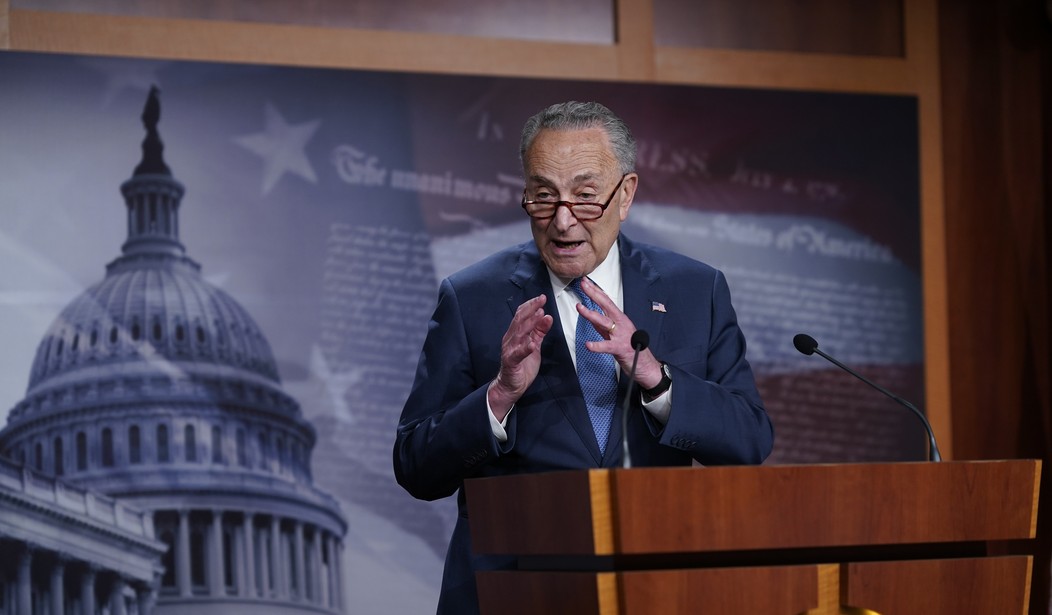Democrats in Congress had some lofty goals when they began their legislative term in January. They wanted to pass a massive infrastructure bill, get a voting bill passed, move on clean energy and climate change, pass a huge defense policy bill, and pass a massive social spending bill. They also knew they would have to raise the debt limit and pass some kind of budget to keep the government running.
Now, here we are almost in December and Democrats still have a “to do” list a mile long and are still several trillion dollars short.
Republicans have effectively blocked most of the Democrats’ agenda, except for an infrastructure bill that Republicans who voted for it are already wishing they could take back.
But there’s no increase in the debt limit, no budget bill to fund the government after December 6, no voting rights bill, and no Build Back Better bill. And there’s precious little time to move on them.
Debate on the measure had hit an impasse before Thanksgiving when several Republican senators said they didn’t want additional amendments added to the legislation unless their proposals are added too. Democrats say there are enough amendments already and the Senate should get on with it.
Democrats tried to pass what they believed was the easiest piece of their year-end legislative blitz. The defense policy bill — all $766 billion of it — has been delayed by Republicans who don’t want additional amendments added to the legislation before voting on it. Democrats say there are enough amendments already and the Senate should get on with it.
If this is the “easy” bill Democrats were talking about, what trouble will the rest of their agenda be in?
Senate Majority Leader Chuck Schumer said he wants to advance the party-line social and climate spending legislation before Christmas, but he needs total unity among his 50 Democrats to move forward. Holdout Sen. Joe Manchin was noncommittal on Monday evening about bringing the bill to the floor; he’ll have to vote to proceed to the legislation before he and other senators can move to amend it.
The West Virginia Democrat said he spent Monday afternoon reviewing the package and again raised concerns about how spending more money might affect inflation. He said that and the new coronavirus variant are among the concerns that should give Congress “cause to pause.”
“I heard an awful lot over the Thanksgiving break that prices were high and people were very much upset about that and concerned about: Is inflation going to get worse?” Manchin said.
“It’s going to be a long month,” Manchin said. That may be the understatement of the year.
“It’s overwhelming. It’s uncertain. But my sense is there’s no forcing mechanism like the end of the year. I’d rather have these deadlines approaching for Dec. 31 than May 31,” said Sen. Chris Murphy (D-Conn.).
Murphy, like many senators in both parties, said that the defense bill would ultimately pass given its history of succeeding annually for 60 years — it’s one of the few things Congress actually does reliably. Yet Democrats said that the hiccup on Monday is part of the GOP’s coordinated strategy of mucking matters up as Biden’s approval sinks.
Democrats are upset at the Republican obstruction tactics. “You can never say there’s a bottom and they won’t go lower,” said Virginia Democrat Tim Kaine.
Democrats would dearly love to get the defense funding bill out of the way so they can devote most of their energies to the Build Back Better bill. To that end, the battle over the $1.7 trillion spending package has moved behind the scenes where the Senate parliamentarian is trying to figure out what parts of the bill need to be excised for not following the rules on reconciliation bills.
Republicans are eyeing a recent addition to the package having to do with immigration.
Still, despite the delay on the defense bill, Democrats aren’t quite ready to bring the social and climate bill to the floor as they and Republicans debate with the Senate parliamentarian on whether the House-passed bill can survive the Senate’s rules. On the most immediate chopping block are a new immigration provision, which must directly affect the budget in order to stay in, and federal paid leave, which Manchin opposes including in the reconciliation bill.
The Senate parliamentarian has to decide if the immigration part of the bill meets any of the requirements set down in the Byrd Rule. A superficial glance at the immigration proposal to legalize about five million DREAMers shows that it will probably end up on the cutting room floor before the final reconciliation bill is voted upon.
Republicans are trying to give the Democrats a Christmas nightmare by forcing the Senate to remain in session. But their main hope is that one or more Democratic senators will refuse to support Biden’s social agenda and send the bill to oblivion.
It’s a long shot, but that’s what being in the minority gets you.










Join the conversation as a VIP Member